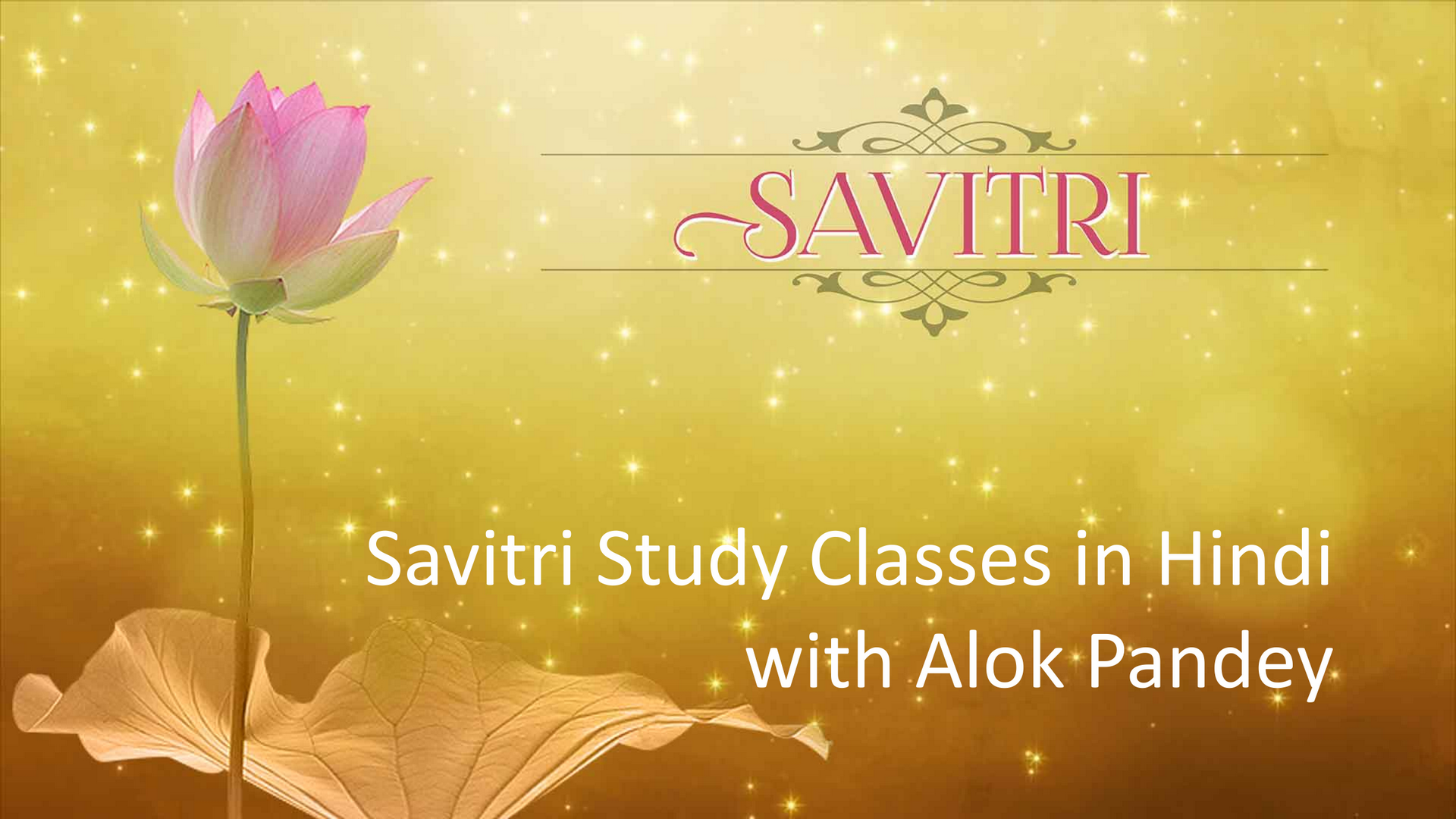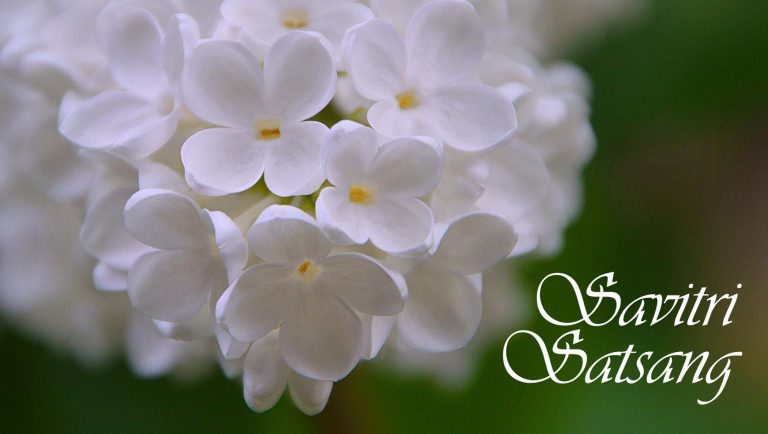Savitri Class in Hindi with Alok Pandey
Savitri Book Seven: The Book of Yoga, Canto One: The Joy of Union; the Ordeal of the Foreknowledge of Death and the Heart’s Grief and Pain
Savitri is adamant about her marriage with Satyavan whom she has chosen as her ideal partner. She is fully aware, following sage Narad’s prophesy, that Satyavan’s life is short-lived, in fact just one more year he has to live. Yet she accepts the challenge of Fate and is ready to embrace the new life that is opening before her. With the touch of a great Master Sri Aurobindo first recounts the scene of Savitri’s departure from her parental palace to the Satyavan’s simple hermitage. As with other scenes of this epic, Sri Aurobindo beautifully weaves into it subtle symbols and profound truths.
“Fate followed her foreseen immutable road.
Man’s hopes and longings build the journeying wheels
That bear the body of his destiny
And lead his blind will towards an unknown goal.
His fate within him shapes his acts and rules;
Its face and form already are born in him,
Its parentage is in his secret soul:
Here Matter seems to mould the body’s life
And the soul follows where its nature drives.
Nature and Fate compel his free-will’s choice.But greater spirits this balance can reverse
And make the soul the artist of its fate.
This is the mystic truth our ignorance hides:
Doom is a passage for our inborn force,
Our ordeal is the hidden spirit’s choice,
Ananke is our being’s own decree.All was fulfilled the heart of Savitri
Flower-sweet and adamant, passionate and calm,
Had chosen and on her strength’s unbending road
Forced to its issue the long cosmic curve.Once more she sat behind loud hastening hooves;
A speed of armoured squadrons and a voice
Far-heard of chariots bore her from her home.A couchant earth wakened in its dumb muse
Looked up at her from a vast indolence:
Hills wallowing in a bright haze, large lands
That lolled at ease beneath the summer heavens,
Region on region spacious in the sun,
Cities like chrysolites in the wide blaze
And yellow rivers pacing lion-maned
Led to the Shalwa marches’ emerald line,
A happy front to iron vastnesses
And austere peaks and titan solitudes.Once more was near the fair and fated place,
The borders gleaming with the groves’ delight
Where first she met the face of Satyavan
And he saw like one waking into a dream
Some timeless beauty and reality,
The moon-gold sweetness of heaven’s earth-born child.The past receded and the future neared:
Far now behind lay Madra’s spacious halls,
The white carved pillars, the cool dim alcoves,
The tinged mosaic of the crystal floors,
The towered pavilions, the wind-rippled pools
And gardens humming with the murmur of bees,
Forgotten soon or a pale memory
The fountain’s plash in the white stone-bound pool,
The thoughtful noontide’s brooding solemn trance,
The colonnade’s dream grey in the quiet eve,
The slow moonrise gliding in front of Night.Left far behind were now the faces known,
The happy silken babble on laughter’s lips
And the close-clinging clasp of intimate hands
And adoration’s light in cherished eyes
Offered to the one sovereign of their life.Nature’s primaeval loneliness was here:
Here only was the voice of bird and beast,—
The ascetic’s exile in the dim-souled huge
Inhuman forest far from cheerful sound
Of man’s blithe converse and his crowded days.In a broad eve with one red eye of cloud,
Through a narrow opening, a green flowered cleft,
Out of the stare of sky and soil they came
Into a mighty home of emerald dusk.
There onward led by a faint brooding path
Which toiled through the shadow of enormous trunks
And under arches misers of sunshine,
They saw low thatched roofs of a hermitage
Huddled beneath a patch of azure hue
In a sunlit clearing that seemed the outbreak
Of a glad smile in the forest’s monstrous heart,
A rude refuge of the thought and will of man
Watched by the crowding giants of the wood.
Arrived in that rough-hewn homestead they gave,
Questioning no more the strangeness of her fate,
Their pride and loved one to the great blind king,
A regal pillar of fallen mightiness
And the stately care-worn woman once a queen
Who now hoped nothing for herself from life,
But all things only hoped for her one child,
Calling on that single head from partial Fate
All joy of earth, all heaven’s beatitude.Adoring wisdom and beauty like a young god’s,
She saw him loved by heaven as by herself,
She rejoiced in his brightness and believed in his fate
And knew not of the evil drawing near.[Savitri: 463 – 467]
(line breaks are added to emphasize separate movements)




